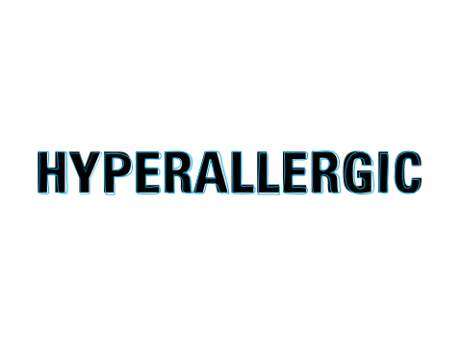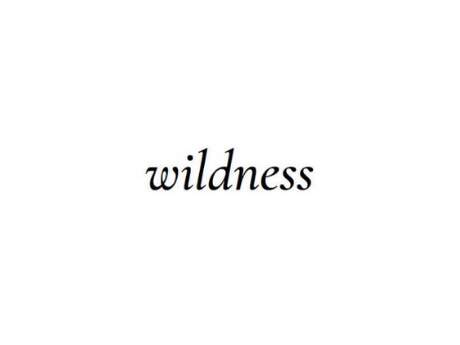Site Visits
The Editors on Tongue
Tell me about the creation of Tongue. When and how and why was it conceived?
Colin Cheney: Halloween, and we were in some bar ("it was Ulysses," says Ron) near Wall Street among masquerading bankers and flushed paralegals trying to hear ourselves. I was flying back to Bangkok the next morning, and Adam and Ron asked me if I wanted to help them create a new literary magazine. I was intrigued at the prospect, but also wary—as I knew my compatriots were as well. I think that the whole undertaking of Tongue has only been possible with the admixture of enthusiasm and healthy skepticism we each brought to the project of bringing another (another, really? another?) literary magazine into the world. While it's small and petulant to bemoan what some perceive as a glut of self-serving lit mags (a critique kin to the "there are too many poets" gripe), it's equally problematic to think that simply magicking a new forum for work into being will solve whatever ills one perceives out yonder in the rising sea of print and online publications. We were excited to inhabit this tension, to challenge our own desire to gather voices that usually don't speak with one another, while also exhilarating in the project of pushing the aesthetic bounds of how online journals look and are experienced by readers. I was returning to Thailand, and Adam was soon to leave for a year in South Africa, while Ron would hold down the fort in Brooklyn: we liked the idea of curating and crafting each issue of Tongue from these divers outposts, even as we pushed against our tastes and biases, both inherited and accreted. We liked the idea of creating a magazine that we would trust in, but also question. After we left the bar that night, we walked to the subway through the rain on streets that a year later would be occupied. The people who would gather in and around Zuccotti Park those weeks would ask litanies of hard questions, and celebrate their polyphony while sometimes also chafing at the difficulty of discovering consensus. No, our project is not theirs. But I like being reminded that we need to ask more questions, listen to a wider range of voices, and ask more of ourselves as citizens and writers. Tongue has become one way we can maybe do that.
Adam Wiedewitsch: To attempt to throw a hay-maker at the how or the when or the why of the genesis of Tongue is to do just that—throw a hay-maker, which will be, no doubt, even more of an invention than the actual magazine. Why do we care so much about beginnings? If I am not mistaken, Joseph Brodsky said, "as far as failures go, attempting to recall the past is like trying to grasp the meaning of existence. Both make one feel like a baby clutching at a basketball: one's palms keep sliding off."
In other words, this is not a comprehensive memory.
That said, if we were to proceed albeit presumptuously under the assumption that he's not too far off, I will risk self-contradiction and say, in the hope that my snake-oil salesman of a memory will cooperate, that I remember it was Brodsky, again, who first pushed the idea of a kind of Tongue of the World—a little volume of poems to tuck into hotel/motel nightstands to co-exist with the customary bibles and room service menus and cable channel guides.
Surely he was not the first to think about this? Surely he was not even the first to say something like that? I mean, aren't poets always going on and on about poetry initiatives as they roar in their drinks behind closed doors? Haven't Poets Laureate been proselytizing for years?
Then again I can't be sure. I remember another Word Fool, equally as stubborn, equally as elusive, stoking the Brodsky-flame with his wings in front of a group of hatchlings (probably as a desperate attempt to shock back to life what life was left in our soon-to-be institutionalized minds) to make small pamphlets of poems collected and printed at home and distributed, simply, as say a lover leaves a scent behind in the sheets.
This might immediately stoke another tiresome fire, one we shy away from. That eternal sectarian tug-of-ego between those who believe art is driven strictly by purpose (be it of the insipid and condescending benevolent variety or the nobility-mongering terroristic) and those who support the art-for-art's-sake faction. I wonder if there is indeed such a war at all. More likely it's imagined.
Perhaps we can only ask more questions? Questions like, are we making what we are making because we believe in the process, or, to another degree, the outcome of the process?
At the very least, I think we attempt to cultivate a kind of sincerity, a trust in the movement, a trust in the process of a collective making, a trust in the people who together make the product. A trust in the magazine itself.
What makes Tongue different from other places to read poetry on the internet?
R.A. Villanueva: Its design. And "design" for us has multiple valences.
First, in terms of the graphic design of Tongue. From the very start, we've been hell-bent on creating a literary magazine striking in its appearance. It had to be something to reckon with on a visual level because we wanted to do justice to the kinds of audacious writing we knew we were going to publish. For us, that meant a call back to the world of the printed book, the physical artifact.
And so we asked for recommendations from Sam Potts, who was instrumental in the re-conception Washington Square when Adam and I were part of its editorial staff. Sam, in turn, connected us to Juliette Cezzar, who was kind enough to create our distinctive word mark, which we proudly affix to everything we can.
While that was happening, Adam reached out to designer Stewart Cauley. Stewart has grown to become another kind of collaborator on the project—someone who looks at each issue's-worth of poems and translations and images, metabolizes the work, and generates layouts dynamic enough experience on-screen and take to the page. In key ways it's his contributions that allow Tongue to exist as the hybrid publication that it is—viewable on a monitor, a tablet, a smartphone, and printed out, full-size, as an art object.
Which takes us to the curatorial design of an issue of Tongue. We make a book each time. Under the influence of that promise, the editors actively debate selections and their ordination. We try to build echoes across each issue so that it lives as a manuscript, an illuminated thing.
What is something that you have recently published that really excited you, and why?
Colin Cheney: I get a lot of joy out of unexpected convergences or resonances that emerge between poets in each issue. For instance: the quiet ferocity of Katie Ford's "Board & Water" ("baptism is as bad as they say/you must renounce the devil/you never met") touches the authoritarian directive of "don't leave your souls unattended" in Chirikuré Chirikuré's "Announcement" that resolves in the sudden mortal and corporeal epiphany near the close of Sinead Morrissey's "V is for Veteran": "As I speak, there is something muscled/ and bloody in the sink." I've also been humbled by the tributes to Jack Gilbert and Chinua Achebe we gathered on Marginalia, our Tumblr; I was particularly moved by Laurel Fantauzzo's tribute to Achebe that also honors the life of the late Filipino film critic Alexis Tioseco, writing: "It is an incredible risk to align yourself with a country wounded by colonialism, to remain and move with aching slowness toward the hope of its better future. To confront its weaknesses and vicissitudes, while too many citizens, too many owners, retreat into shrugs and silence."
What should someone submitting new work to Tongue know about the site?
Adam Wiedewitsch: We are not accepting unsolicited submissions at this time.
R.A. Villanueva: This is a conscious choice, as well. We've been following a model where, at the present, we've been actively trawling our own reading lists, contacting artists and writers we deeply admire to see if they'd send us work to consider.
Colin Cheney: We do, however, enjoy engaging in dialogue with anyone who is compelled or challenged by the work they find in our pages. We're also always keen to entertain invitations to collaborate on multi- or new media projects.
What other literary journals, online or print, are your favorites?
Adam Wiedewitsch: I like The Wolf in the UK.
R.A. Villanueva: In terms of online: I'm continually learning from Asymptote, DIAGRAM, Lantern Review, Guernica, and, though it's not a "literary magazine," per se, there are amazing things happening in Kill Screen. While those are loading, subscribe to the print editions of The Kenyon Review, AGNI, and Circumference, all of which, by the way, have a substantive online presence.
The essays in The Rumpus and L.A. Review of Books are consistently astounding. As is pretty much everything written by Ta-Nehisi Coates at The Atlantic.
Colin Cheney: Tasmania-based literary magazine Island publishes some really compelling stuff—check out John Kinsella's essay "On the Use and Abuse of Poetry" in a recent issue. Vagabond Press, out of Sydney and Tokyo, has a marvelous chapbook series featuring many exciting Australian voices. And the new Dhaka-based journal Bengal Lights (soon to be available on Kindle) provides a fascinating glimpse into the literary world of Bangladesh. And if you're not reading Guernica, one of the finest online literary magazines, well, then go read it now.
* * *
Adam Wiedewitsch co-founded the international association of writers and artists, The Pirogue Collective, and co-edited the anthology Imagine Africa and The Rule of Barbarism, poems by Abdellatif Laâbi. He has received fellowships from the Gorée Institute (Senegal), the Eva Tas Foundation (Holland), DAAD (Berlin), The Millay Colony (New York) and The Ledig House International Writers Residency (New York); his poetry has been published in Carapace (South Africa), New Contrast (South Africa), and Azul Press (Holland).
Colin Cheney's collection of poems, Here Be Monsters (University of Georgia, 2010), was selected for the National Poetry Series. His poems have appeared in American Poetry Review, Poetry, Ploughshares, Kenyon Review, Crazyhorse, and Gulf Coast. He ha received a Ruth Lilly Fellowship and a Pushcart Prize. He lives in Bangkok, Thailand.
R.A. Villanueva lives in Brooklyn. The winner of the 2013 Ninth Letter Literary Award for poetry, his writing has appeared in AGNI, Virginia Quarterly Review, McSweeney's Internet Tendency, DIAGRAM, Bellevue Literary Review, and elsewhere.


